 W
WLlewelyn Sherman Adams was an American politician, best known as White House Chief of Staff for President Dwight D. Eisenhower, the culmination of an 18-year political career that also included a stint as Governor of New Hampshire. He lost his White House position in a scandal when he accepted an expensive vicuña coat.
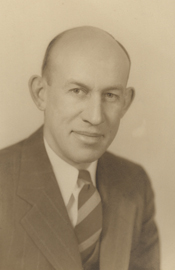 W
WJohn Zuinglius Anderson was a U.S. Representative from California.
 W
WHarry Jacob Anslinger was a United States government official who served as the first commissioner of the U.S. Treasury Department's Federal Bureau of Narcotics during the presidencies of Hoover, Roosevelt, Truman, Eisenhower, and Kennedy. He was a supporter of prohibition and the criminalization of drugs while spreading anti-drug policy campaigns. Anslinger held office an unprecedented 32 years in his role as commissioner until 1962. He then held office two years as U.S. Representative to the United Nations Narcotics Commission. The responsibilities once held by Anslinger are now largely under the jurisdiction of the U.S. Office of National Drug Control Policy.
 W
WEdward Latimer Beach Jr., nicknamed "Ned", was a highly decorated United States Navy submarine officer and best-selling author.
 W
WHowell Gardner Crim was an American civil servant best known for being the Chief Usher of the White House in Washington, D.C., from 1938 to 1957.
 W
WCharles C. Finucane was an American government official, and banking and investments executive.
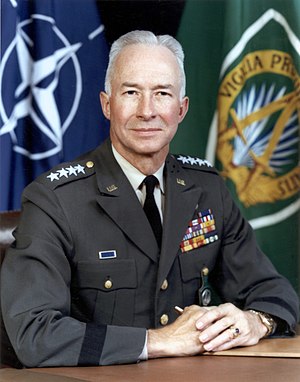 W
WAndrew Jackson Goodpaster was an American Army General. He served as NATO's Supreme Allied Commander, Europe (SACEUR) from July 1, 1969, and Commander in Chief of the United States European Command (CINCEUR) from May 5, 1969, until his retirement December 17, 1974. As such, he was the commander of all NATO (SACEUR) and United States (CINCEUR) military forces stationed in Europe and the surrounding regions.
 W
WRobert Keith ("Bob") Gray was a Republican activist and public relations executive who founded Gray and Company in 1981 after working with Hill & Knowlton. He served as an advisor to President Dwight Eisenhower.
 W
WGordon Gray was an official in the government of the United States during the administrations of Harry Truman (1945–53) and Dwight Eisenhower (1953–61) associated with defense and national security.
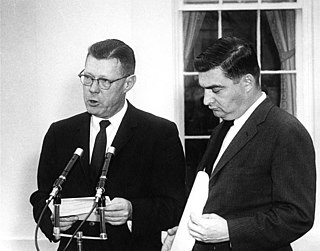 W
WJames Campbell Hagerty served as the sixth White House Press Secretary from 1953 to 1961 during the administration of Dwight D. Eisenhower. He was known for providing much more detail on the lifestyle of the president than previous press secretaries; for example, he covered in great detail Eisenhower's medical condition. Most of the time, he handled routine affairs such as daily reports on presidential activities, defending presidential policies, and assisting diplomatic visitors. He handled embarrassing episodes, such as those related to the Soviet downing of an American spy plane, the U-2 in 1960. He handled press relations on Eisenhower's international trips, sometimes taking the blame from a hostile foreign press. Eisenhower often relied upon him for advice about public opinion, and how to phrase complex issues. Hagerty had a reputation for supporting civil rights initiatives.
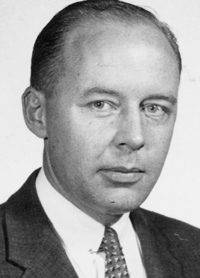 W
WBryce Nathaniel Harlow was a congressional staff member, army officer, advisor to U.S. presidents, and corporate lobbyist.
 W
WHarry Garner Haskell Jr. was an American businessman and Republican politician from Wilmington, Delaware. He served as mayor of Wilmington from 1969 to 1973 and represented Delaware in the U.S. House of Representatives from 1957 to 1959.
 W
WRalph Hauenstein was an American philanthropist, army officer and business leader, best known as a newspaper editor. His leadership has produced institutions such as the Hauenstein Center for Presidential Studies at Grand Valley State University, the Hauenstein Parkinsons and Neuroscience Centers at Saint Mary's Hospital and the Grace Hauenstein Library at Aquinas College.
 W
WClarence Dickinson "Doc" Long, Jr. was a Democratic U.S. Congressman who represented the 2nd congressional district of Maryland from January 3, 1963 to January 3, 1985.
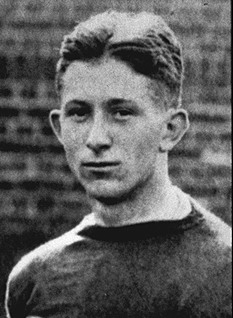 W
WDonold B. Lourie was an American businessman, government official, and college football player. He served for many years as the president of the Quaker Oats Company, and held various other executive positions there and for several other businesses. President Dwight D. Eisenhower appointed Lourie to a position in the State Department, and he served in that capacity for one year. Lourie attended Princeton University, where he was a star quarterback, and he was named a consensus All-American as a junior. Lourie was inducted into the College Football Hall of Fame in 1974.
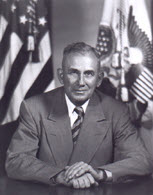 W
WHugh Meglone Milton II was a major general of the United States Army during World War II who served as United States Under Secretary of the Army from 1958 to 1961.
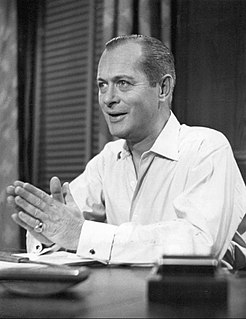 W
WRobert Montgomery was an American film and television actor, director, and producer. He began his acting career on the stage, but was soon hired by MGM. Initially assigned roles in comedies, he soon proved he was able to handle dramatic ones as well. He appeared in a wide variety of roles, such as a weak-willed prisoner in The Big House (1930), an Irish handyman in Night Must Fall (1937) and a boxer mistakenly sent to Heaven in Here Comes Mr. Jordan (1941). The last two earned him nominations for the Academy Award for Best Actor.
 W
WCarl Ferdinand Pfeifer was an officer in the United States Navy and naval aide to Presidents Harry S. Truman and Dwight D. Eisenhower. A native of Springfield, Ohio, he would marry twice. His first marriage, to Dorothy Dowling, ended in divorce. He was married to Mary Louis Whitmore for the rest of his life. He is buried at Arlington National Cemetery.
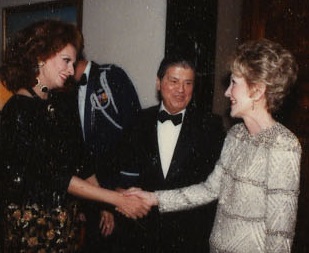 W
WMaxwell Milton Rabb was a lawyer who served in various positions as an advisor to U.S. President Dwight D. Eisenhower, and later as Ambassador to Italy under President Ronald Reagan.
 W
WJames Lee Rankin was the 31st United States Solicitor General.
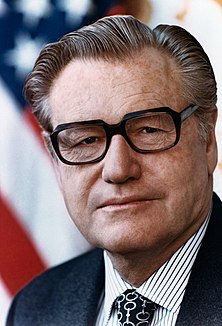 W
WNelson Aldrich Rockefeller was an American businessman and politician who served as the 41st vice president of the United States from 1974 to 1977, and previously as the 49th governor of New York from 1959 to 1973. He also served as assistant secretary of State for American Republic Affairs for Presidents Franklin D. Roosevelt and Harry S. Truman (1944–1945) as well as under secretary of Health, Education and Welfare under Dwight D. Eisenhower from 1953 to 1954. A grandson of billionaire John D. Rockefeller and a member of the wealthy Rockefeller family, he was a noted art collector and served as administrator of Rockefeller Center in Manhattan, New York City.
 W
WLeonard Andrew Scheele was an American physician and public servant. He was appointed the seventh Surgeon General of the United States from 1948 to 1956.
 W
WGeorge Pratt Shultz is an American economist, politician, and businessman. He served in various positions under three different Republican presidents and is one of only two people to have held four different Cabinet posts. Shultz played a major role in shaping the foreign policy of the Ronald Reagan administration. From 1974 to 1982, he was an executive of Bechtel Group, an engineering and services company. In the 2010s, Shultz was a prominent figure in the scandal of the biotech firm Theranos, continuing to support it as a board member in the face of mounting evidence of fraud.
 W
WMajor General Howard McCrum Snyder was a member of the United States Army Medical Corps, and Physician to the President for Dwight D. Eisenhower.
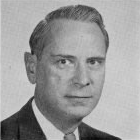 W
WJames Bernard West, known as J. B. West, was the 6th Chief Usher of the White House serving from 1957 to 1969. His best-selling book, Upstairs at the White House: My Life with the First Ladies, documents his time in the executive mansion and is considered a good source of material on the First Families he served.
 W
WMalcolm Richard Wilkey was a United States Circuit Judge of the United States Court of Appeals for the District of Columbia Circuit and United States Ambassador to Uruguay.
 W
WJesse Ernest Wilkins Sr. was a U.S. lawyer, labor leader, undersecretary in the Eisenhower administration and both the first African-American to be appointed to a sub-cabinet position in the United States Government and the first to attend White House cabinet-level meetings.